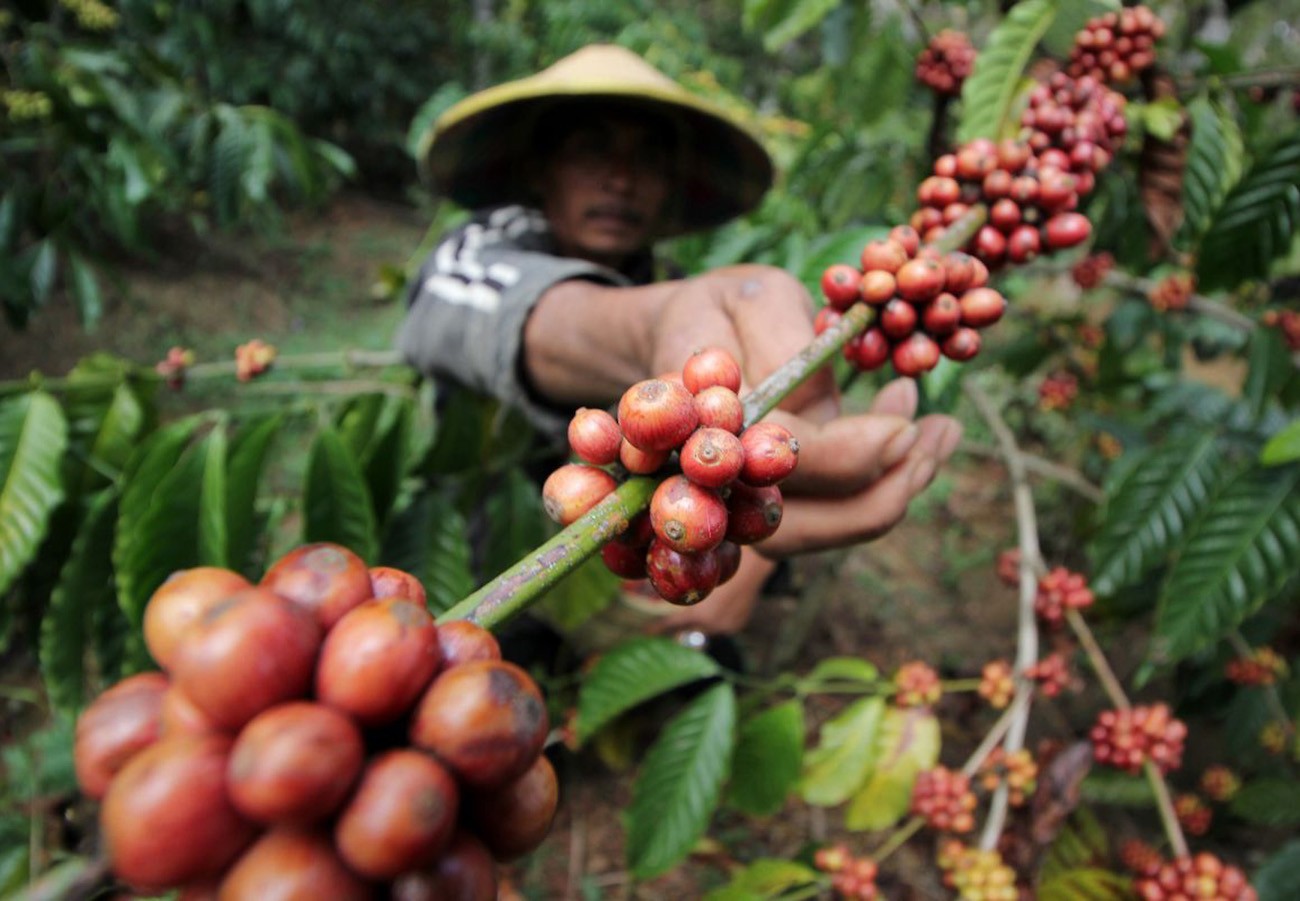Popular Reads
Top Results
Can't find what you're looking for?
View all search resultsPopular Reads
Top Results
Can't find what you're looking for?
View all search resultsWonogiri looks to cultivating tourism with 'coffee villages'
The Wonogiri administration plans to cultivate coffee tourism in the regency through the establishment of "coffee villages" in the districts of Bulukerto, Girimarto and Jatistrono.
Change text size
Gift Premium Articles
to Anyone
T
housands lined up at the coffee stalls of Giri Krida Bakti Square in Wonogiri, Central Java, on the eve of World Coffee Day, which falls on Oct. 1. They were attending the inaugural “Wonogiri Nduwe Kopi” (Wonogiri Has Coffee) event to enjoy free Wonogiri-grown coffee.
Yosef Bagus Adi of the event’s organizing committee told the Post: “Public enthusiasm is great. It turns out that there are a lot of coffee lovers, although there are not many coffee shops here.”
He is right. Ironically, Wonogiri has very few coffee shops, although Wonogiri regency’s namesake capital city, located to the south of Surakarta, is a leading coffee producer. Among the famed variants grown in the area are Arabica Conto, Robusta Brenggolo and Robusta Semagar. These coffee variants are bestsellers in many coffee shops in Surakarta and Yogyakarta.
“The Wonogiri coffee industry has taken off in the last two years. We’re more confident now, because local products are starting to gain [popularity] in local coffee shops,” said Bagus.
A thousand cups of free coffee were distributed during the event, which was held to introduce Wonogiri coffee as a source of local pride, showing off Wonogiri’s finest coffee products.
Over the last five years, Wonogiri regency has been encouraging its farmers to develop their coffee crops. Local farmers had previously cultivated coffee on their own, without any guidance or training.
Read also: Merapi farmers offer new variants to lure coffee enthusiasts
Sular, a coffee farmer from Conto village in Bulukerto, Wonogiri said, “It’s not just me. In the beginning, farmers let the coffee trees grow tall. And then they harvested and sold [the berries] to the market.”
Sular was among the first to revisit how he plants, harvests and processes coffee.
“It all started when I tasted an amazing cup of coffee. It was Bulukerto coffee. I couldn’t believe it, and that’s when I decided to get serious about my coffee-planting,” he added.
Sular has been a coffee farmer since 1990, but only started applying cultivation and processing techniques in the last three years. He currently grows 200 coffee plants on hi 2-hectare farm.
“I still plant my coffee using double cropping, among vegetables and tobacco. I don’t have my own coffee [plantation] yet,” he said.
Sular says that one coffee plant can produce about 15 kilograms of coffee fruit per harvest. He is highly selective in his harvesting, and picks only the ripe berries. He also processes his own coffee, removing the skin and pulp, and then drying and roasting the beans.
“In 2017, the selling price was a mere Rp 30,000 (US$1.97) per kilogram. Today it’s Rp 60,000, and this is because [my coffee] is processed correctly from harvesting through to producing grounds for [instant coffee],” he said.
Wonogiri Vice Regent Edy Santosa said that Wonogiri coffee had the potential to be marketed nationwide. Coffee farmers had also emerged in other areas of the regency beyond Bulukerto, in Girimarto and Jatisrono. The farmers in those two districts have come up with several coffee products such as Kowi (Kopi Wonogiri, or Wonogiri coffee), Wiji, Brenggolo and Ndomblong.
“There are 20 coffee farmers in Bulukerto and 15 in Girimarto that are planting both Arabica and Robusta coffee,” said Edy.
Wonogiri regency, according to Edy, was also planning to develop coffee tourism by establishing desa kopi– “coffee villages” – in Bulukerto, Girimarto and Jatistrono. Thousands of coffee plants grow in the areas, all planted and tended by around 200 coffee farmers.
“We will combine it with ecotourism and take tourists to see how coffee is processed. This will be an attractive program for tourists,” he added. (asw)







